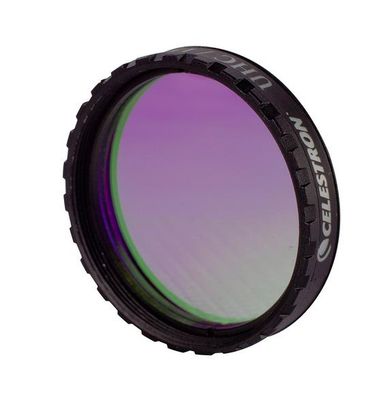- All Products
- Shop by Brands
- BW Technologies
- BW Technologies
- BW Technologies Monitors
- Models
- BW Clip
- BW Clip4
- GasAlertClip Extreme
- GasAlert Extreme
- GasAlertMicroClip XT
- GasAlertMicroClip XL
- GasAlertMicroClip X3
- GasAlertQuattro
- GasAlertMax XT II
- GasAlertMicro 5 Series
- SamplerPak
- IntelliDox Docking System
- MicroDock II
- BW Ultra
- BW Solo
- Gas Monitors
- Gas Monitor Manufacturers
- BW Technologies
- Bacharach
- Biosystems
- Crowcon
- Gas Clip Technologies
- GfG Instruments
- GMI/Detcon
- Honeywell Analytics
- Industrial Scientific
- MSA
- RAE Instruments
- RKI Instruments
- Calibration Gas
- Combustion Analyzers
- Water Quality
- Reliability Instruments
- Refractometers
- HVAC
- Weather
- Temperature
- Laboratory
- Sound
- IAQ
- Electrical
- All Categories
Celestron 1.25" UHC/LPR Filter - 94123
Item #:
CEL-94123
Brand:
Celestron
Share this product:
94123 1.25" UHC/LPR Filter by Celestron
Our 1-1/4" Light Pollution Reduction (LPR) Filters are designed to selectively reduce the transmission of certain wavelengths of light, specifically those produced by artificial light. This includes mercury vapor, and both high and low pressure sodium vapor lights and the unwanted natural light caused by neutral oxygen emission in our atmosphere (i.e. sky glow).
The new ultra high contrast (UHC) LPR filter has improved contrast over the typical broadband filters. Sky background is darker, and contrast of emission nebulae are noticeably improved. The advanced technology coatings enable the filter to achieve an outstanding transmission of over 97% across the entire bandpass, with total blockage of prominent light pollution lines. The perfect filter for viewing nebula from light polluted skies, or for boosting the contrast of nebula from dark sky sites.
In addition to it's optimum spectral and optical characteristics, the UHC/LPR filter offers important features that set it apart and result in the highest quality celestial views:
The multi-layer dielectric coatings are plasma assisted and Ionbeam hardened using the latest technology for durability and resistance to scratching.
Improved transmission translates to maximum image brightness and contrast. Users of smaller, 4"-11" telescopes will especially appreciate the high efficiency, and larger scope users will love the rich star fields and detailed subtle nebular shadings that are left intact.
The high transmission, sharp cutoffs, and more moderate 60nm passband of the UHC/LPR filter retains a more natural view, yet significantly boosts overall contrast. Imagers will appreciate the broader bandpass and inclusion of an extremely efficient H-Alpha passband (656nm).

















